Advocacy marketing, also known as word-of-mouth or referral marketing, is a strategy that leverages satisfied customers (i.e., brand advocates) to promote a product, service, or brand. What makes advocacy marketing unique from other marketing strategies is its reliance on the good will of existing customers.
Successful advocacy marketing requires a strong bond between a brand and their customers. When done well, this can be one of the most effective of all marketing strategies for companies across nearly every industry. According to Nielsen, “92 percent of consumers around the world say they trust earned media, such as recommendations from friends and family, above all other forms of advertising—an increase of 18 percent since 2007.”
What Is Advocacy Marketing?
As stated above, advocacy marketing is a strategic marketing approach that involves mobilizing individuals or groups to actively promote and support a cause, idea, product, or brand. It goes beyond traditional marketing methods by harnessing the enthusiasm and commitment of advocates who genuinely believe in and align with the values or benefits associated with what is being promoted.
Why Advocacy Marketing Matters to Brands
An advocacy marketing program is often the most valuable marketing channel for a business because it relies primarily on existing customers and their networks to amplify brand messaging and special promotions. This lowers overall costs when compared to other traditional marketing activities, such as retargeting ads, search engine marketing campaigns and other forms of advertising that require ongoing large budgets to properly maintain. And due to the fact that people are more likely to respond to opinions from those they know and trust more than corporate advertising, conversion rates are generally much higher as well.
In fact, according to Friendbuy, brand advocacy marketing typically yields up to a 25X return on spend for businesses that take the time to put together bespoke programs and campaigns.
However, lower costs and a higher conversion rate are not the only reasons why advocacy marketing is an extremely valuable tool for professional marketing teams. There are additional customer advocate referral program benefits as well. These include:
Higher Customer Lifetime Value
Brand advocates by default will have a strong connection with the people they are advocating to on a business’s behalf. They know who is a likely customer of a brand and who would be the perfect customer fit within the circle of people they can influence. Therefore, customers that are referred through a brand advocacy program are 3-4X more valuable throughout their lifetimes than customers that come through other channels.
Community-building
Advocacy marketing helps build a community of loyal supporters who share common interests or values. This community can become a valuable asset for the brand, fostering a sense of belonging and encouraging long-term customer relationships. Additionally, as brand advocates bring more people into the community and are rewarded for this behavior, some will become full-on brand champions. It’s important to note, these brand champions can be tapped to help drive action in all kinds of word-of-mouth marketing campaigns and are immensely valuable to brands of all types.
Increased Customer Loyalty
Turning customers into brand advocates can enhance their loyalty to a brand over time. When individuals feel a personal connection to a brand and actively promote it, they can gain a sense of ownership and dedication to its success, especially if they are being rewarded for their efforts (which they should be!).
Compelling Customer Testimonials
Professional marketing teams are constantly looking for fresh quotes from customers that demonstrate how fantastic their products are. Since brand advocacy programs often help foster close relationships between these teams and their corresponding brand advocates and champions, most companies that run these types of marketing programs will find they constantly have a reliable source of excellent customer testimonials for all of their products and services.
Direct Influence on Purchasing Decisions
Recommendations from friends, family, or peers often play a crucial role in consumer purchasing decisions. Therefore, an advocacy marketing program can be one of the best tools a business has to drive the adoption of a new product or service.
How To Create a Successful Advocacy Marketing Campaign or Program
Marketing programs that rely on customer advocacy and goodwill take a fair amount of planning and forethought to implement, particularly if you want to maximize engagement by providing a referral reward structure that motivates people to participate. Some of the most important elements to consider when putting together a brand advocacy program or campaign are:
Set Clear Objectives
Start by defining what you aim to achieve with your advocacy program. Whether it's increasing brand awareness, driving user engagement, or generating leads, having clear objectives will guide your strategy.
Identify Your Advocates
Identify and segment your existing customer base to find those who are most passionate and satisfied with your product or service. This can be based on a variety of metrics, including the frequency of a customer’s purchases, the dollar amount they’ve historically purchased, whether or not they have left positive reviews in the past, and more. These advocates are more likely to champion your brand to others. We’ll touch more on this subject later in this blog post.
Incentivize Advocacy
A critical component of any referral or advocacy program is to offer incentives or rewards that encourage advocacy. This could be in the form of discounts, exclusive access to new features or products, or even monetary rewards for referrals (Give $20, Get $20). However, it’s important to make sure that whatever incentives you choose to provide closely align with your advocates' interests and motivations. This will maximize the effect of your program.
Strategically Promote Your Program
An advocacy marketing program won’t do a brand any good if nobody knows about the program. To ensure enough customers know about your word-of-mouth referral program to make it worth maintaining, it needs to be promoted across a variety of channels that regularly receive eyeballs. Text and email marketing campaigns that promote your program are a great start, but you should also consider adding banners on your website and callouts in an eCommerce checkout flow.
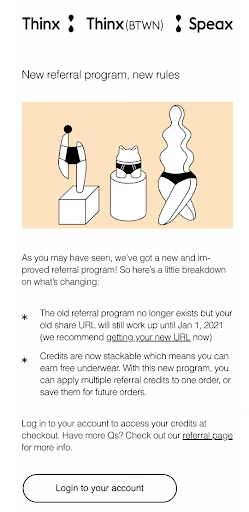
Protip: Friendbuy’s referral program software enables you to easily integrate your advocacy marketing campaigns with Klaviyo, Attentive and Iterable so you can grow your subscriber lists and drive more customer referrals.
Create a Dialogue With Your Customers
Foster a sense of community among your advocates by creating dedicated online forums, social media groups, or events where they can connect with each other and share their experiences. This not only strengthens their loyalty but also encourages them to advocate for your brand more actively.
Empower Advocates
It's important to provide your advocates with the tools and support they need to effectively promote your brand. This could include personalized referral links, social media templates, pre-written emails and text messages or even training sessions on how to talk about your products.
Track & Measure Results
Performance tracking is a critical component of running any brand advocacy campaign. Ideally, marketers should track metrics such as referral traffic, conversion rates, cost per acquisition and more to gauge its effectiveness and identify areas for improvement.
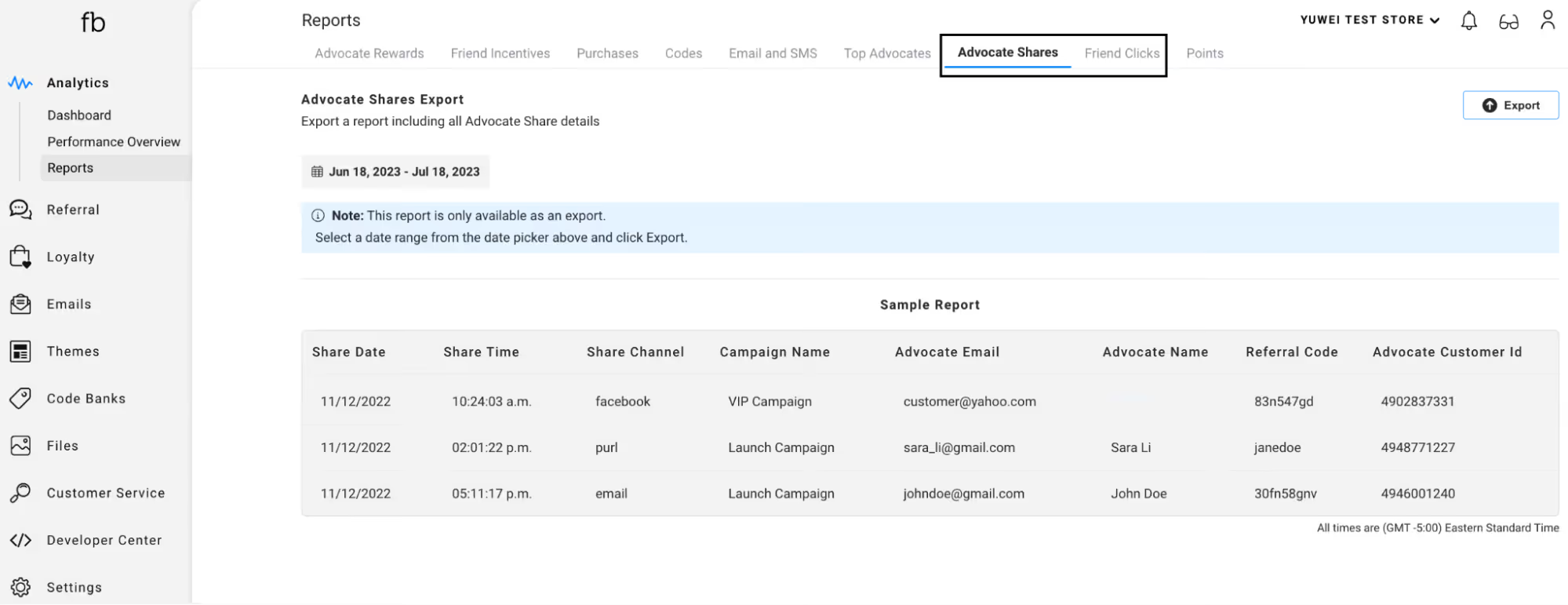
Protip: Software that is purpose-built for running advocacy marketing programs, like Friendbuy, often include comprehensive analytics dashboards that make it easy to see how your campaigns are performing.
Continuously Optimize
Every marketing initiative your team undertakes should constantly be revised and optimized to obtain the best results — and a brand advocacy program is no different. Your team should regularly review your advocacy program and make changes based on the insights gathered from tracking and measuring results. Most importantly, be sure to experiment with different incentives and offer presentations to receive the best ROI possible.
By incorporating these key elements into your advocacy marketing program, you can effectively harness the power of your satisfied customers to amplify your brand's reach and credibility with your desired audience.
How To Find Customers That Make Great Advocates
Somewhat obviously, you can’t run an advocacy marketing campaign without fantastic brand ambassadors, champions and advocates who are willing to pass along your messaging and promote your products or services to their friends, family and networks.
However, not all of your customers will necessarily make excellent brand advocates. Some will naturally be more inclined to participate in an advocacy program than others. For a brand to launch and maintain a successful campaign, it’s important to ensure you have a reliable cohort of customers who are excited about your products or services and ready to help spread the word. A concerted effort should be made to attract these types of customers to engage with your program, especially early on.
Below are a few strategies you might consider when attempting to identify and target your customers that would make the best advocates.
Keep an Eye on Your Company's Reviews
Monitor customer interactions and satisfaction through surveys, feedback forms, or social media. Identify customers who have shown enthusiasm for your product and have positive experiences.
Build Personal Relationships With Customers
Actively engage with your user community through forums, social media groups, or dedicated customer communities. By building relationships with users who regularly contribute, provide feedback, or share success stories, you’ll build a base of customer advocates primed and ready to drive word-of-mouth marketing success.The stronger the relationship, the more a customer is to become an advocate.
Examine Purchase History & Product Usage Data
Every interaction a customer has with your brand leaves behind a trail of valuable data points. From the moment they make their first purchase to their ongoing engagement with your products or services, each action provides insights into their preferences, behaviors, and level of satisfaction. By harnessing this wealth of information, brands can paint a comprehensive picture of their customers, and more importantly, pinpoint those who would be most likely to engage in a customer advocacy campaign on your behalf.
Real-world Examples of Advocacy Marketing in Action
Let’s now take a look at some advocacy marketing programs that are currently being run by leading brands across a variety of industries.
1. Thinx
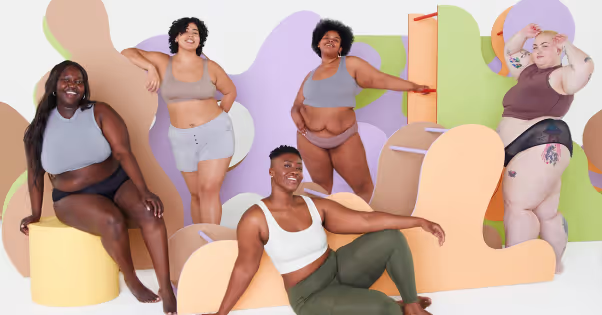
Thinx, a renowned health and wellness brand celebrated for its innovative period underwear, initially began its advocacy marketing program by offering a basic 'give $10, get $10' incentive scheme to reward both advocates and the friends they referred to the company.
However, as the company's popularity surged, certain limitations with the referral codes started to irk users. For instance, if a user enthusiastically referred five new people to Thinx, they would receive five individual referral codes, each requiring redemption through separate orders.
Thinx recognized the need to enhance their referral program and collaborated with Friendbuy to implement stackable credits on Shopify Plus, enabling advocates to accumulate credit through referrals. Friendbuy's integration with Shopify streamlined the process, automating referral code generation and reward validation, freeing up Thinx's team to focus on enhancing customer experiences. Additionally, advocates gained visibility into their rewards via a customizable referral dashboard, resulting in a reduction in customer service inquiries.
The introduction of stackable credits encouraged ongoing referrals, fostering increased user engagement and revenue. The size of the program subsequently doubled and emerged as the company’s most efficient acquisition channel with a cost per acquisition of under $1.
Learn more about Thinx’s success story here.
2. Nuuly

Nuuly, a clothing rental subscription service, needed a way to acquire new customers cost-effectively post-launch. To accomplish this goal, they implemented an advocacy marketing program through Friendbuy, using customizable templates and automatic rewards to get the program up and running quickly. This strategy led to over 2,500 new subscribers within weeks, driven by influencers on platforms like Instagram. Doubling the offer during the holidays further boosted sales, marking their best numbers since the company’s launch.
Learn more about Nuuly’s success story here.
3. Tonal
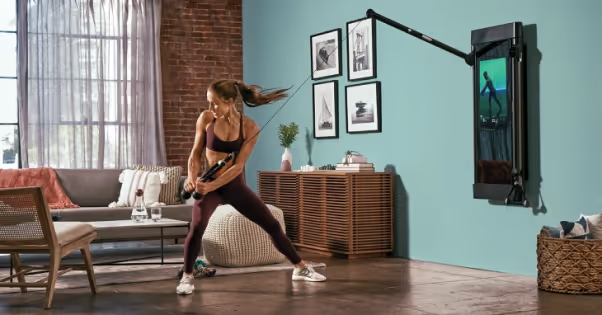
Rich Krolikowski, Tonal’s Growth Marketing Manager, needed an advocacy marketing solution that would seamlessly integrate with the company’s existing marketing setup. Partnering with Friendbuy, they devised a referral program in which customer-advocates receive $50 per referral, and each referred friend receives $100 off, once a purchase is made. Friendbuy's collaborative approach ensured a smooth implementation, and its flexible platform allowed Tonal to adapt the program easily as the brand scaled. As a result, approximately 10% of Tonal's customers have engaged with their advocacy marketing program, driving significant revenue growth for the company.
Additionally, the program boasts a remarkable 500% higher conversion rate compared to other channels, contributing up to 7% of monthly revenue and continuing to escalate month after month. This success translates into millions of dollars in referral sales annually, demonstrating the program's impact on sustaining Tonal's growth trajectory.
Learn more about Tonal’s success story here.
4. Flaviar
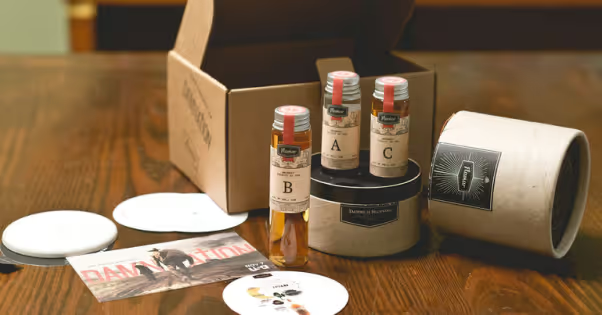
Flaviar, the world's leading premium spirits club, has implemented a user-friendly advocacy marketing program to capitalize on satisfied customers' natural inclination to share. Through Friendbuy's platform, Flaviar created tailored referral campaigns for different membership tiers and actively leveraged events like Father's Day and National Friendship Day to boost engagement. The results were remarkable, with a 256% increase in referral revenue year-over-year, and referral revenue becoming a significant portion of Flaviar's total revenue during the COVID-19 pandemic, peaking at 9.2%. With over 500 new members per month attributed to referrals at its peak, Flaviar's agile and innovative approach to marketing has proven highly successful, establishing word-of-mouth marketing as a cornerstone of their growth strategy.
Learn more about Flaviar’s success story here.
5. SPANX

Since its inception, SPANX has leveraged word-of-mouth marketing and brand ambassadors to drive referral sales, notably highlighted by Oprah Winfrey's endorsement of the brand in 2000.
However, to harness the power of advocacy marketing across the digital space, SPANX worked with Friendbuy to implement tailored product sharing campaigns, identifying high-growth product categories and running simultaneous referral campaigns with targeted messaging and visuals.
SPANX achieved a remarkable 15% conversion rate from referred customers and saw an 8% higher average order value (AOV) from referral orders compared to standard ones. Notably, specific referral campaigns, such as product category campaigns, significantly boosted conversion rates by 26% for targeted categories. With ongoing collaboration and support from Friendbuy's dedicated customer success team, SPANX continues to optimize its referral program, strategically placing CTAs throughout the customer journey to drive awareness and impulse referrals.
Learn more about Spanx’s success story here.
6. Prose
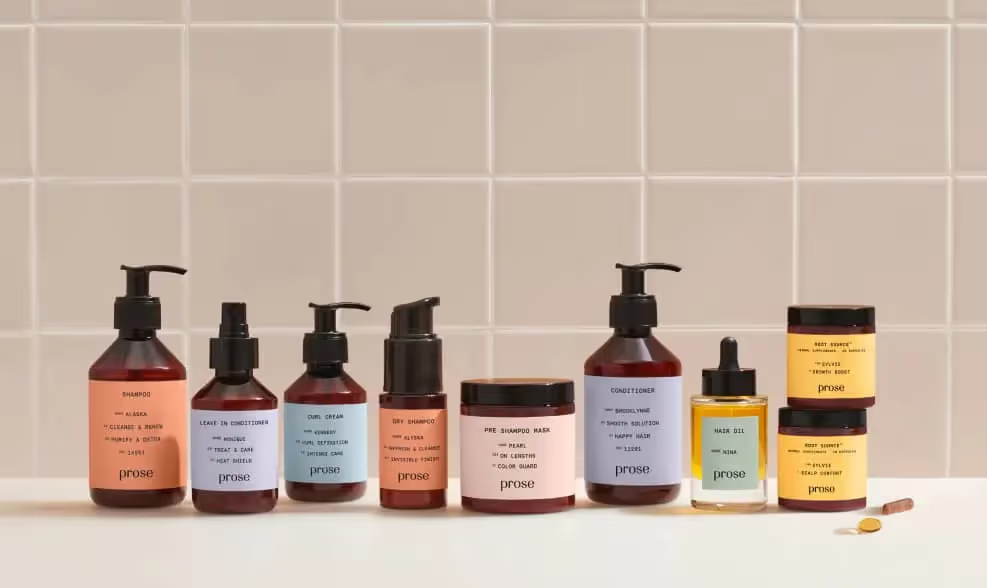
Prose, renowned for its bespoke hair and skincare solutions tailored to individual needs, recognized the power of advocacy marketing in an industry inundated with choices. Understanding that personalized recommendations from trusted friends resonate deeply with consumers, Prose strategically integrated a referral program into their marketing ecosystem. By leveraging detailed customer data collected through an online survey, Prose not only enhanced the customization of their products but also used this information to fuel targeted referral initiatives. With a focus on increasing visibility, they optimized program placement across customer touchpoints, including email footers, dedicated referral emails, and a prominent sitewide banner, facilitating seamless sharing experiences for customers.
Through meticulous A/B testing, Prose fine-tuned their referral strategy, optimizing incentives to maximize conversions while maintaining cost efficiency. By transitioning from a "Give $10, Get $10" to a "Give $20, Get $20" incentive model, they observed a significant 5% increase in conversion rates. Additionally, Prose achieved a single-digit cost-per-acquisition, which is 117x cheaper than paid ads, and an impressive 8x return on their customer advocacy program investment.
Learn more about Prose’s success story here.
7. woom
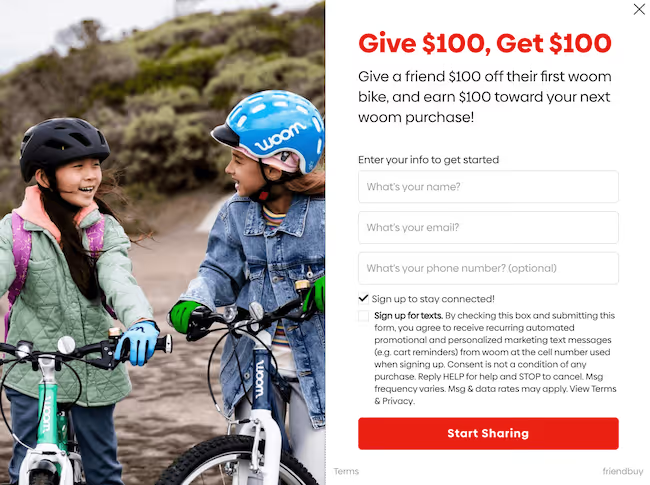
woom, known for its ultralight and ergonomic bikes, partnered with Friendbuy to integrate an advocacy marketing program into their customer journeys via Friendbuy’s robust Klaviyo integration. By embedding advocacy reminders in emails and post-purchase communications, woom achieved a 30x ROI shortly after program launch.
woom's savvy approach to customer segmentation and incentivization — such as offering exclusive rewards to VIP subscribers like $100 for SMS subscribers — fostered loyalty and drove significant advocacy engagement. This strategy resulted in 40% of new email and SMS subscribers originating from their advocacy program. Furthermore, innovative campaigns like referral giveaways led to a 58% increase in month-over-month revenue from the surge in subscribers. During these giveaways, woom entered customers to win a $1,000 gift card for every share, and provided a guaranteed $50 gift card for both the advocate and referred friend, after the referred friend made a purchase.
Additionally, woom observed a 21% higher average order value for referred friends compared to other customers.
Learn more about woom’s success story here.




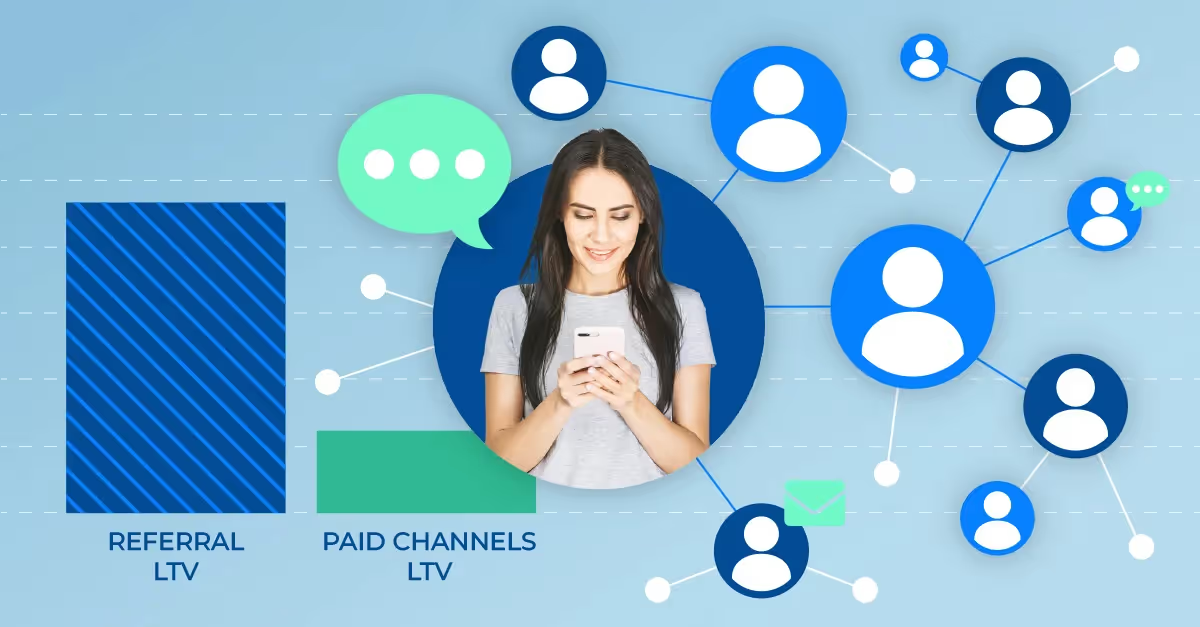
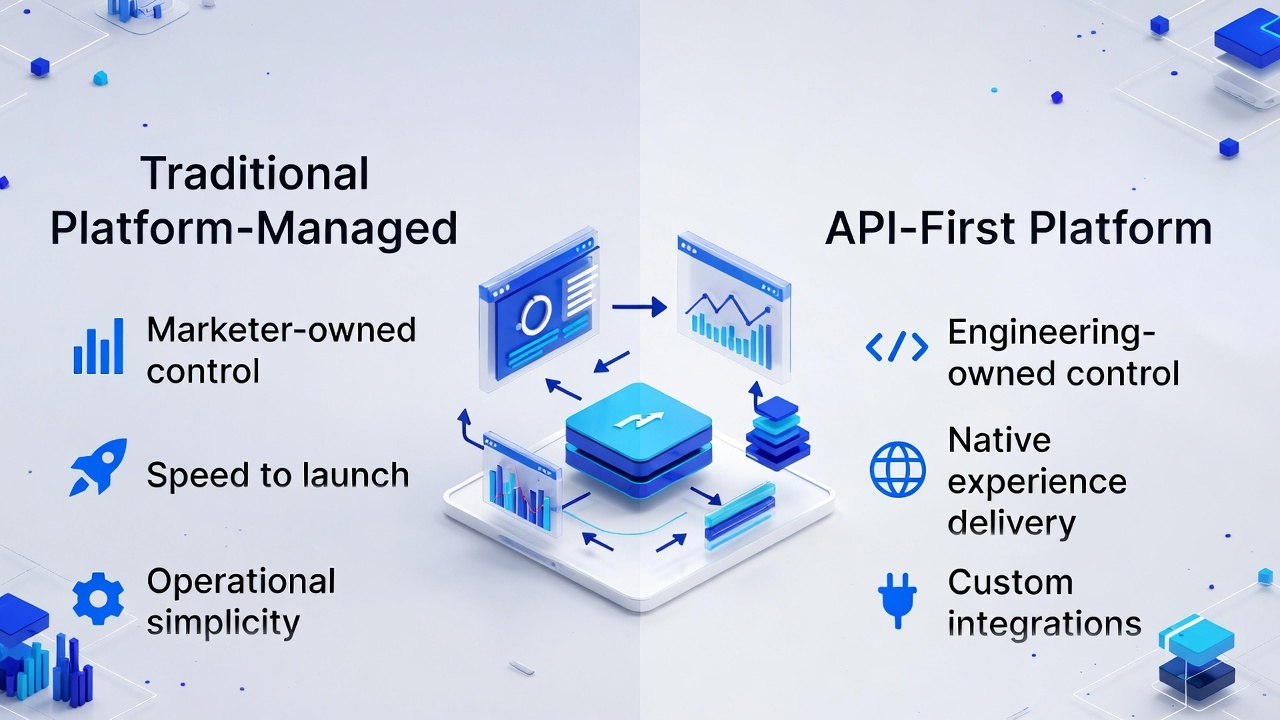
.jpg)

.avif)

